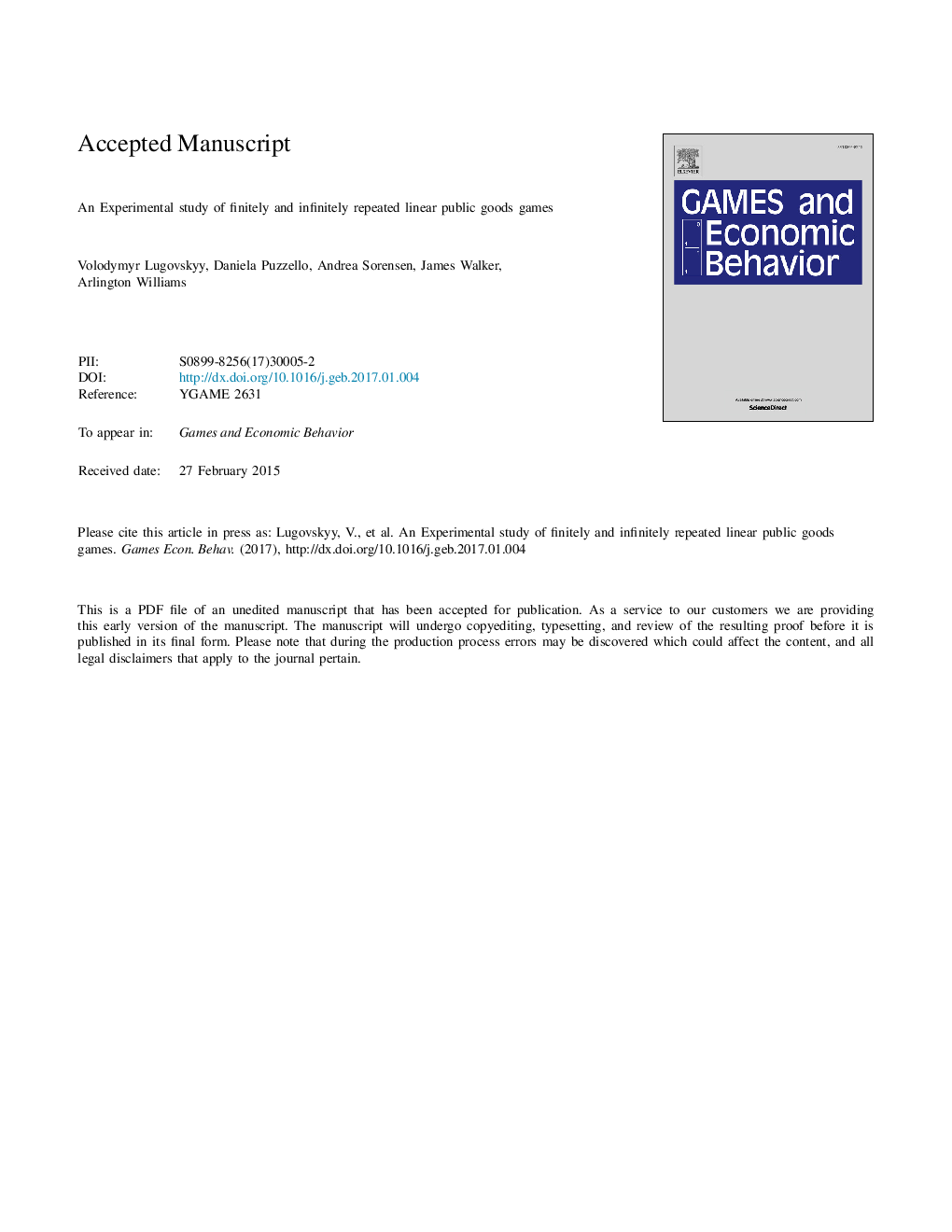| Article ID | Journal | Published Year | Pages | File Type |
|---|---|---|---|---|
| 5071292 | Games and Economic Behavior | 2017 | 40 Pages |
Abstract
A growing literature in experimental economics examines the conditions under which cooperation can be sustained in social-dilemma settings. In particular, several recent studies contrast cooperation levels in games in which the number of decision rounds is probabilistic to games in which the number of decision rounds is finite. We contribute to this literature by contrasting the evolution of cooperation in probabilistically and finitely repeated linear voluntary-contribution public-goods games (VCM). Consistent with past results, ceteris paribus, cooperation is found to increase in the marginal value of the public good. Additionally, as the number of decision sequences increases, there is a pronounced decrease in cooperation in the final round of finite sequences compared to those with a probabilistic end round. We do not, however, find consistent evidence that overall cooperation rates are affected by whether the number of decision rounds is finite or determined probabilistically.
Related Topics
Social Sciences and Humanities
Economics, Econometrics and Finance
Economics and Econometrics
Authors
Volodymyr Lugovskyy, Daniela Puzzello, Andrea Sorensen, James Walker, Arlington Williams,
